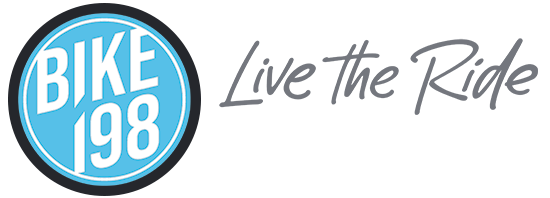 Last year, I headed up to Pisgah Forest, North Carolina for a 3 day weekend to get in some much needed, big mountain riding in. Like most vacation ride spots, I slammed in as much singletrack as I possibly could so there wasn’t one spec of dirt against rubber that was wasted. Prior to the trip, I got in a couple of extra rides and hit the road bike a couple of times to make sure my legs were ready for the abuse. After a great weekend of shredding singletrack, I came home to find my legs completely dead with zero power. Of course, I didn’t find this out until I tried to drop the hammer on our regular weekly ride and I actually had to “train” to get the power back in my legs over the course of the next two weeks! So what happened?!
Last year, I headed up to Pisgah Forest, North Carolina for a 3 day weekend to get in some much needed, big mountain riding in. Like most vacation ride spots, I slammed in as much singletrack as I possibly could so there wasn’t one spec of dirt against rubber that was wasted. Prior to the trip, I got in a couple of extra rides and hit the road bike a couple of times to make sure my legs were ready for the abuse. After a great weekend of shredding singletrack, I came home to find my legs completely dead with zero power. Of course, I didn’t find this out until I tried to drop the hammer on our regular weekly ride and I actually had to “train” to get the power back in my legs over the course of the next two weeks! So what happened?!
Racers Are Not The Only Ones That Can Over-Train
While we typically think of racers as the ones that are training and the rest of us are just riding, the same pitfalls that racers can run into affect us as recreational riders as well. In the above short story, I basically over-trained my legs to the point they were deteriorating instead of building. The result…legs that don’t want to do anything and a period of time that you have to build back fitness that you have now lost all because you (or I in this case) didn’t do a couple of things to insure that you did not over-train your body.
So…what can you do to insure that you are not working backwards when you want to hit the extra miles or elevation during a given week?
Tips To Prevent Dead Legs
Here are some tips to get you rolling and keep you pedaling after a weekend of hard riding.
- Take A Break! – Far too often, I see riders try to burn the midnight oil and not give their legs and body adequate time to recover. Without days of rest in-between hard riding, the body can not repair torn tissue and it starts to attack itself. While I am not a biologist and there is a lot of science around this theory, this is proved to yourself through muscle pains and the situation I explained above. Make sure you are giving your body enough time to get ready for the next round of abuse. By riding 7 days a week, you can actually work away from your goal instead of towards it.
- Fluids and Nutrition – During times of recovery and over exertion, it is increasingly important to flood your body with nutrition and water to aid in the healing process. Without the necessary fuel, your body does not have the energy to recover quickly. While you are on the trail and off, make sure you are giving your body the quality nutrients that it needs to get the job done. Sorry…beer calories don’t count…
- Train Off The Bike – If you really want to bring your riding to another level and prevent a lot of this recovery madness, train off the bike as well. By doing programs like The Ultimate MTB Workout, you can strengthen riding muscles properly to be a healthier rider on the trail.
- Carefully Plan Trips – When you are looking to do a destination weekend or week on the bike, carefully plan your rides. Typically, I like to put the hardest ride dead in the middle of the trip and then work down from there putting the easier rides at the beginning and end (kind of like a bell curve of hardness). It allows my body to warm up to the area and then cool back down. Sometimes it can be hard to get a read on new areas, so check out local forums and talk to local bike shops as you plan out your rides.
- Work Slowly Back Up – If you do happen to lose the power in your legs, do not push it. Work slowly back up and try not to make matters worse by pushing yourself harder than you should.
Any of us that have been riding for a period of time have experienced over-training. By taking several tips into consideration, we can drastically cut down on the damage done to our legs and keep the stoke going after hard rides. The trick is careful planning and not getting in over our heads.
Boxer image by IntangibleArts
